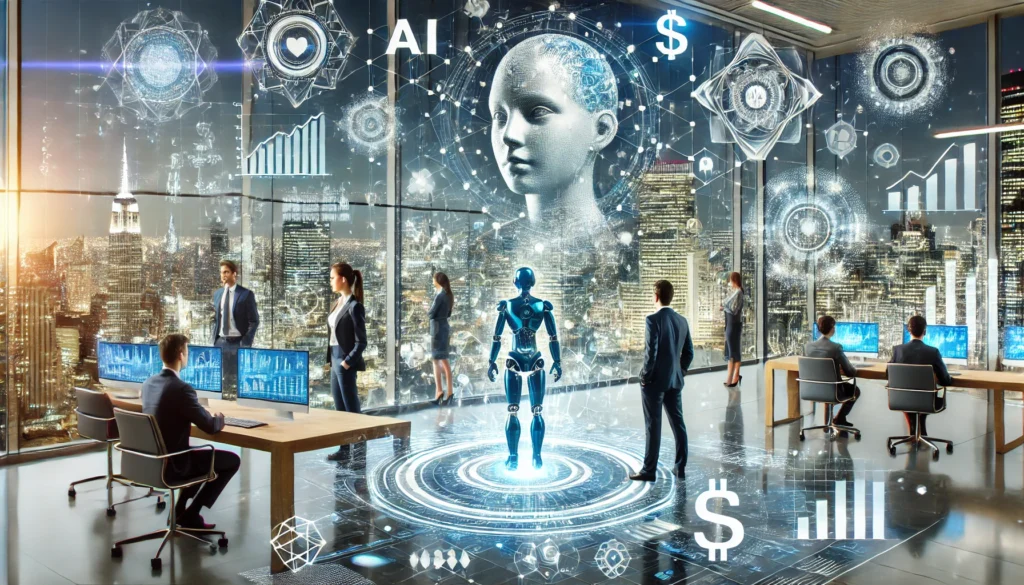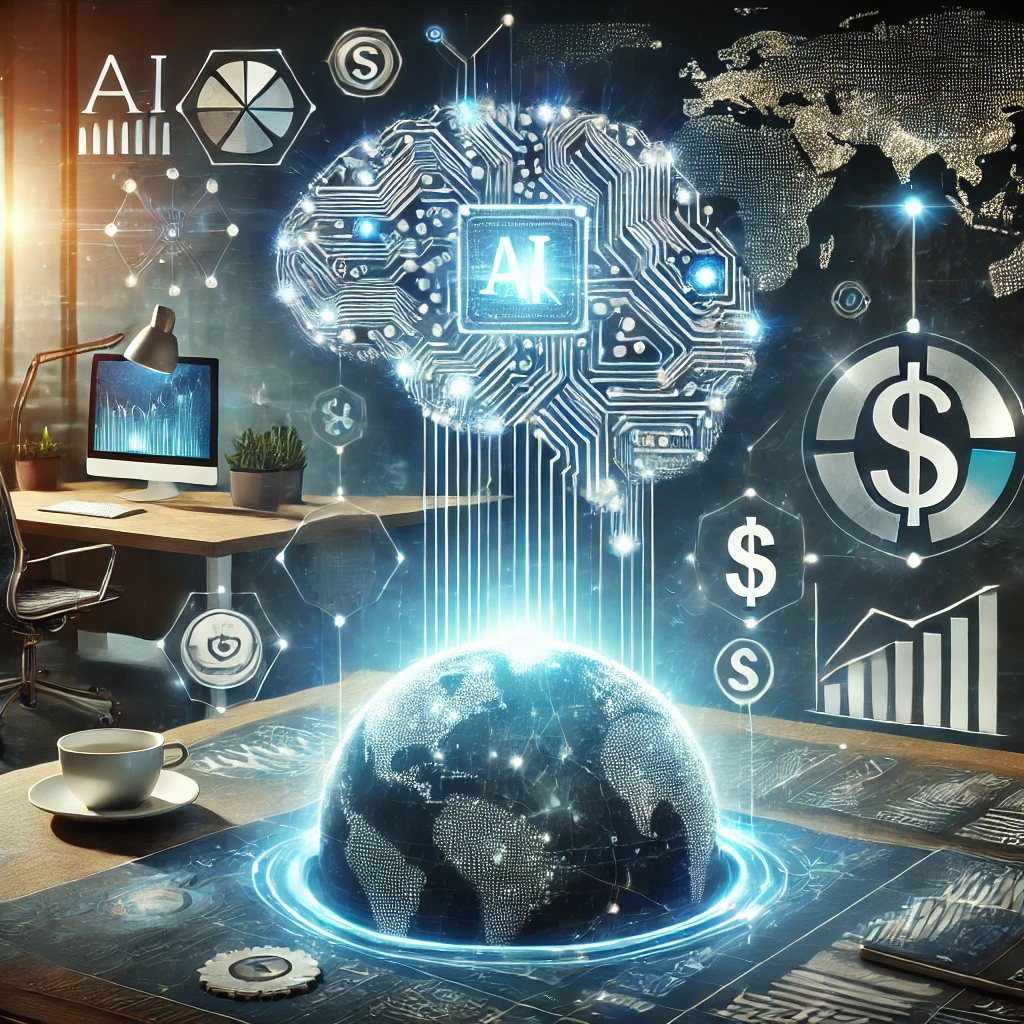Generative AI in Finance and Business
Generative AI in business and Finance
Introduction
Generative AI has become a game-changer across various industries, especially in finance and business. This advanced technology, powered by deep learning and neural networks, enables machines to create data, text, images, and even predictive insights. With its ability to revolutionize decision-making, streamline operations, and enhance customer experiences, Generative AI is shaping the future. In this post, we’ll explore its applications, benefits, challenges, and the transformative potential it holds for finance and business.
What is Generative AI?
Generative AI refers to a branch of artificial intelligence that uses machine learning models to generate content, such as text, audio, images, or simulations, that closely resembles human creations. Examples include ChatGPT for text generation, DALL-E for images, and various algorithms used in financial forecasting.
This technology operates on advanced neural networks that process large datasets to understand patterns and predict outcomes. But beyond creativity, its role in solving real-world problems—like financial risk analysis and business process automation—is driving innovation.

Applications of Generative AI in Finance
1. Personalized Financial Services
Generative AI empowers financial institutions to deliver highly personalized financial advice. Robo-advisors use AI to analyze user data and provide tailored investment strategies, helping individuals achieve their financial goals with ease.
Example: Platforms like Betterment and Wealthfront use AI to recommend portfolios and optimize savings plans.
2. Fraud Detection and Prevention
AI models can detect unusual activity in financial transactions by learning patterns over time. Generative AI enhances fraud detection by predicting fraudulent behavior even before it occurs.
Example: Banks like JPMorgan Chase use AI to flag suspicious transactions in real-time, protecting customers from financial losses.
3. Algorithmic Trading
Generative AI is transforming stock trading by analyzing massive datasets, predicting market trends, and executing trades faster than any human.
Example: AI-driven trading platforms like Trade Ideas use algorithms to maximize returns for traders by automating buy-and-sell decisions.
4. Risk Assessment
Financial institutions leverage AI to evaluate creditworthiness, assess risks, and prevent loan defaults. Predictive analytics, powered by AI, ensures better decision-making in high-stakes scenarios.
Example: Banks like HSBC use AI to streamline loan approval processes, reducing risks for both the bank and borrowers.

Applications of Generative AI in Business
1. Enhanced Marketing Strategies
Generative AI enables businesses to create engaging marketing content, from blog posts to advertisements. AI-powered chatbots also provide personalized customer service, improving satisfaction.
Example: Coca-Cola leverages AI to create unique ad campaigns tailored to specific customer demographics.
2. Product Development
Generative AI helps businesses simulate product designs and test ideas before launch. By analyzing customer feedback, AI ensures products meet market needs effectively.
Example: Tesla uses AI simulations to refine its autonomous vehicle technology.
3. Operational Efficiency
Businesses automate repetitive tasks, like data entry and report generation, with AI. This reduces errors, saves time, and cuts costs..
Example: Companies like UiPath specialize in AI-powered automation tools for businesse
4. Employee Training and Upskilling
Generative AI powers immersive employee training through virtual reality (VR) and augmented reality (AR). Employees can learn skills in a simulated, risk-free environment.
Example: Walmart uses AI-powered VR training for employees to handle real-life scenarios effectively
Benefits of Generative AI in Finance and Business
Improved Decision-Making: AI provides actionable insights by analyzing vast datasets.
Cost Savings: Automating processes reduces operational costs.
Enhanced Customer Experience: Personalized services lead to higher customer satisfaction.
Faster Time-to-Market: Businesses can launch products more efficiently.

Challenges and Limitations
1. Ethical Concerns
Generative AI models can produce biased results if trained on unbalanced datasets. This raises concerns about fairness in decision-making.
2. Implementation Costs
Smaller businesses may struggle to afford the high costs of integrating AI into their processes.
3. Data Privacy Issues
Handling sensitive financial and customer data requires strict compliance with data protection regulations.
4. Regulatory Challenges
Governments and financial institutions must navigate complex regulations to deploy AI ethically and legally
The Future of Generative AI in Finance and Business
Generative AI is just getting started. Its integration with emerging technologies like blockchain and quantum computing promises even greater innovation. Financial institutions and businesses that adapt quickly will stay ahead in this rapidly evolving landscape.
Predictions for the future include:
Widespread use of AI-driven customer service agents.
Expansion of AI in financial planning and wealth management.
Deeper integration with IoT devices for seamless business operations.
Conclusion
Generative AI is no longer a futuristic concept—it’s a present-day reality reshaping industries. From enhancing customer experiences to driving operational efficiency, its applications in finance and business are limitless. However, as with any transformative technology, addressing challenges like ethics and implementation costs is crucial for sustainable growth
Are you ready to embrace the power of Generative AI in your business? Share your thoughts in the comments!
